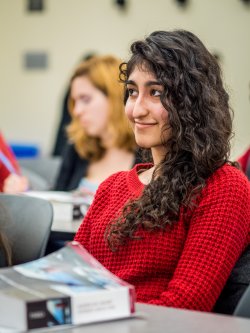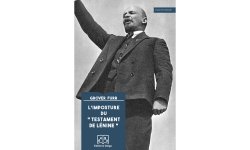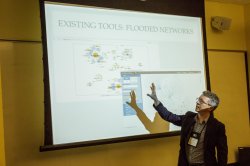Why study English at Montclair State University?
The English Department is a vibrant community of teachers and students devoted to the study of literature, language, and culture. English majors pursue an engaging course of study that is intellectually rigorous yet flexible and dynamic. In addition to its undergraduate major and minor, the department offers a master’s degree, a variety of teacher education programs, and programs in Film Studies, Creative Writing, and American Identities and Cultures.
In the English Department, students learn to read and write critically, and to think and conduct research independently. Their intellectual horizons are broadened through an introduction to works from a range of historical periods and countries around the world. The major helps them become fluent in critical methods—historicism, race and gender studies, formal and textual analysis—that they can apply not just to literature, but also to the representations at the heart of their rapidly changing world. Students develop higher-level writing and thinking skills that support careers in teaching, publishing, law, journalism, communications, the mental health professions and business.
We invite you to learn more about the English department, our faculty, and some of our alumni in these pages.










